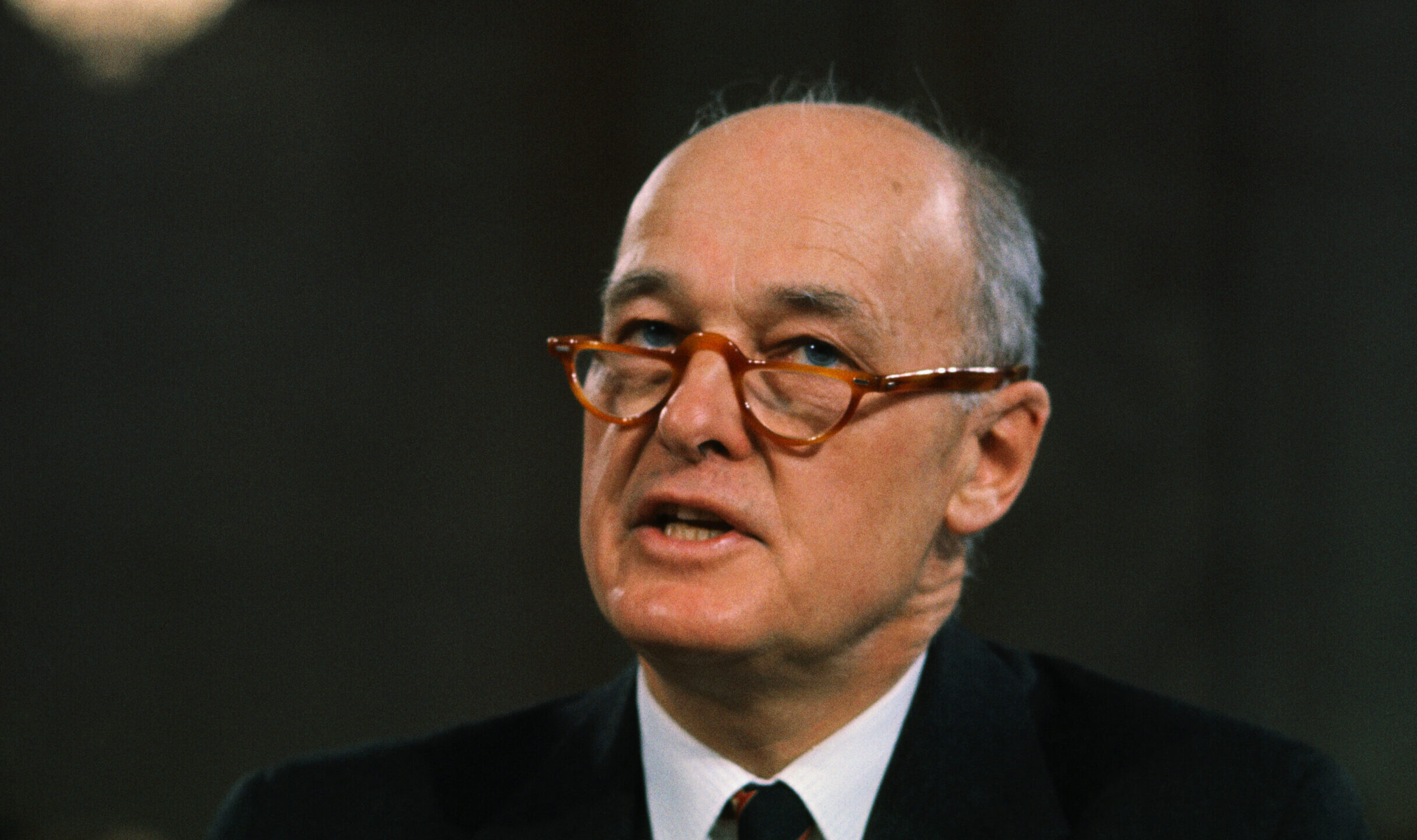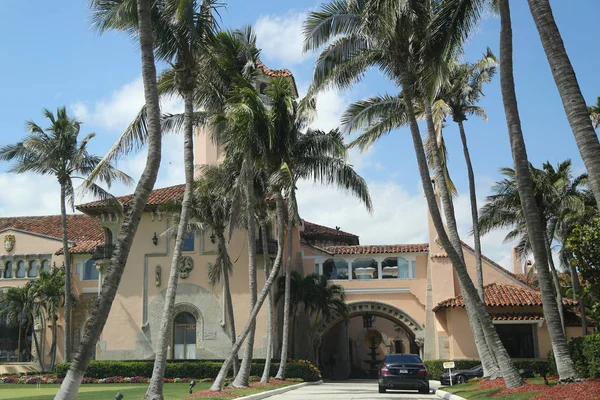Michael Anton: Worthy Heir to George Kennan
More than any recent vintage, the Trumpist intellectual fits the bill for the State Department’s main brain.

Michael Anton and I got off on the wrong foot.
It’s a dead-and-buried Trumpworld feud, but at one point in time, Michael Anton was on the wrong side of it—or at least he was perceived to be. An April 9, 2018 National Interest article by yours truly declared that “Michael Anton Lost the Faith of the Populist Right.”
The piece featured anonymous quotes by senior Trump administration officials that diagnosed that the then-deputy assistant to the president for strategic communications “was a shill” and to not “believe for a second he resigned out of principle.” Another major Trumpworld interlocutor emailed, “Anton came in as [former National Security Advisor Michael] Flynn’s guy as the biggest proponent of Trump’s ‘America First’ and went to the dark side.”
I stand by the reporting: The quotes were real, and the sentiment against Anton wasn’t beneath the surface; it was piping hot magma spewing from the Trump volcano that weird and fateful spring.
People had it out for Anton. And that’s all I said.
But what wasn’t in the piece (I tried to call balls and strikes a little more fastidiously in those days than I do now as the paleocon crank reporter you know and love) is that the whole feud was doltish. Anton had been a pseudonymous penman behind the virtuoso and now-defunct Journal of American Greatness (one of the few honest outlets in 2016), and put his money where his mouth was by leaving a cush comms job at BlackRock and joining a now self-admittedly ramshackle administration in 2017.
Anton went in with Trump’s first national security advisor, Michael Flynn (whom the sage left-wing writer Chris Hedges once floated as Trump’s MAGA heir had the New Yorker lost the 2016 election), and Flynn had been a conquering hero of military intelligence in his commando days. It theoretically was not a joke posting, but Flynn ended up being part railroaded, part naïf, and apparently part enamored of gobs of Turkish dosh.
Flynn lasted a “Scaramucci” or two in the White House, and his most memorable line was “putting Iran on notice,” whatever that meant. It all didn’t work out. Flynn was replaced with H.R. McMaster, a harder-working, more conventional, less interesting version of his predecessor. Anton had two choices: resign in moral protest over his man’s sacking (though it was never clear how close the two ever were or are), or be a good soldier. He chose the latter, and portions of the MAGA right crucified him for it.
I am writing here to say, once and for all, that I don’t regret reporting on the skirmish, but that that kind of criticism was dead wrong.
In the years since, Anton has distinguished himself (not that he was lacking) as a cerebral force for those who would like to repair the country along nationalist and populist lines. His retention as the prospective Secretary of State Marco Rubio’s director of policy planning, or Foggy Bottom’s main brain, is a salutary development in what has been a characteristically hurly-burly transition.
Anton survived a rough-hewn cancellation attempt in autumn over his China views for having the temerity to even ask the question, in 2021, on Taiwan if it is “wise to threaten, much less launch, a nuclear strike [emphasis: mine] over a territory [China sees] as a vital organ but is peripheral to us?” Perhaps Anton’s greatest transgression (he is a true student of ideology) is calling out neoconservatives when he sees them.
Also stated in that now-notorious piece in the Federalist: “Even if the great neocon dream for China were suddenly to become reality, a ‘liberal democratic’ Beijing would want Taiwan back too.” (Such realities are seen, on a smaller scale, tonight in the streets of Damascus. In five years’ time, should he still have the throne, will Ahmed al-Sharaa see Syrian interests all that differently than the Assad clan did?)
Moving along, Anton has spent the down years between the Trump terms heroically and hilariously combatting the antediluvian Reaganite Mark Helprin on the issue of Ukraine in the pages of the Claremont Review of Books. Anton’s instincts speak well of the fact that at least one member of America’s coming ruling council is skeptical of technocratic blather: “Helprin at times reads like one of those quantitative political scientists supremely confident that everything can be counted, measured, and calculated to exactness. … But he never shows that, not on any point.”
If successful, which I suspect will be the case, Anton’s tenure will invariably be compared to that of George Kennan, the hero-founder of the Policy Planning office as Washington was of the presidency and Hamilton of the Treasury Department. Smoothly, Anton has also recently reviewed Kennan, and addressed the late diplomat’s virtues and shortcomings. The two share much: principally, perfectionism and obsessiveness (Anton’s menswear enthusiasm is the stuff of fable at this point.)
Per Anton, Kennan had “an overdeveloped conscience.” Anton says Kennan was “sometimes even soft about matters of genuine concern that are better addressed by recourse to that analytical coldness than to emotional appeals, however well-intentioned or deeply felt.”
Anton notes further: “Kennan’s instinctual conservatism ran so deep that he was something of a Luddite. He lived to see the internet but said little about it. Judging from his lifelong disdain for machines and industrialization (he hated cars), he would have loathed Big Tech.”
And Anton diagnoses, correctly, how Kennan’s career peaked and then swiftly faded—in the annals of real power, that is:
Kennan continued riding high as long as George Marshall remained secretary of state. But when the former general resigned, citing exhaustion, Kennan’s new boss, Dean Acheson, was far less deferential to his advice. The two went back a long way and were friendly, but Acheson had less patience for Kennan’s mostly long (not to say long-winded) intellectual expositions and preferred attacking problems head-on. Kennan, realizing that his star had dimmed, took a leave, eventually landing a spot at Princeton’s highly prestigious Institute for Advanced Study (then home to Albert Einstein, Robert Oppenheimer, John von Neumann, and many other luminaries). Two years later, he was tapped to return to Moscow, this time as ambassador. But neither President Harry Truman nor Acheson gave him any instructions; to the contrary, they expected him to observe and report—and that’s all.
Anton’s goal now? Match—and maybe outlast—his hero.
The post Michael Anton: Worthy Heir to George Kennan appeared first on The American Conservative.

